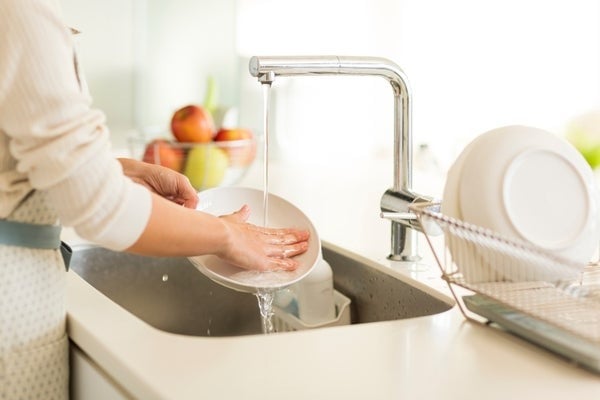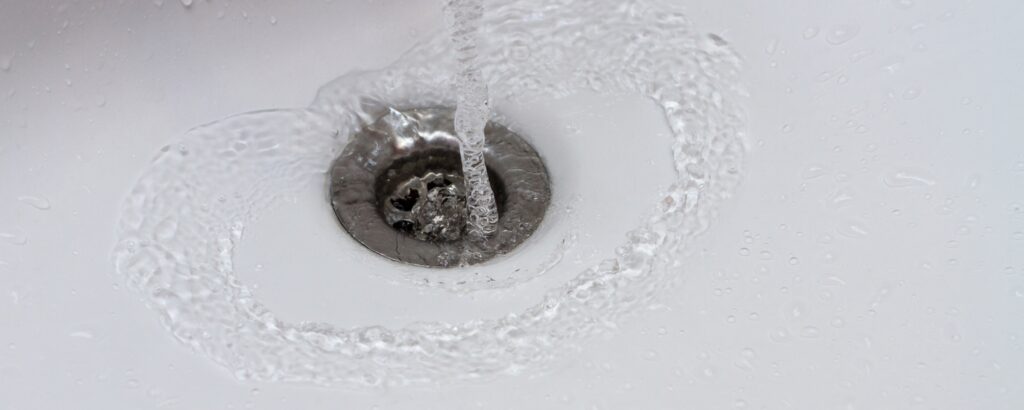Methods To Fix A Slow-Draining Sink
Methods To Fix A Slow-Draining Sink
Blog Article
They are making a few good annotation related to Three Common Ways to Fix a Slow Drain in general in this post below.

Introduction
We've all been there: You're cleaning your teeth or washing your hands, and you observe the water pooling in the sink. Rather than rapidly swirling away, it remains, turning your once-refreshing early morning regimen right into a small overload scene. A slow-draining sink isn't just frustrating; it's usually an indicator of bigger plumbing issues hiding beneath the surface area. The bright side is that the majority of slow-draining sinks can be taken care of with a little expertise, a couple of basic tools, and some persistence. Ready to tackle this job head-on? Let's roll up our sleeves and dive right in.
Understanding the Reasons For a Slow-Draining Sink
Before you start poking around in your pipes, it helps to recognize what might be causing the stagnation. Comprehending the source makes it less complicated to pick the ideal solution.
Typical Perpetrators Behind Slow Drainage
So, what's blocking things up? Commonly, it's a mix of daily particles-- believe hair, soap residue, tooth paste deposit, and remaining food particles. Gradually, these little bits gather and hold on to the pipe walls, gradually tightening the flow and making it harder for water to go through. Sometimes, mineral deposits from hard water can also include in the substance, developing the excellent tornado for stubborn clogs.
When is it Time to Take Action?
If you observe the water draining slower than usual, it's a good concept to step in quicker instead of later. Waiting as well long could cause complete clogs, unpleasant smells, or even pipeline damage. If the water takes greater than a couple of secs to clear out after switching off the tap, consider it a red flag and prepare to put on your DIY hat.
Devices and Materials You'll Require
The right devices make all the difference. Thankfully, you won't need a totally stocked plumbing technician's van to get the job done.
Important Tools for Do It Yourself Repair Works
A plunger is your go-to starting point. A little, sink-sized bettor develops suction that can displace minor clogs. For more relentless clogs, a drain serpent (often called a plumbing's auger) functions wonders. A pair of gloves, a flashlight, and maybe a pair of protective goggles are likewise helpful.
Advised Cleansing Solutions
Light dish soap and hot water can assist break down greasy build-up. A blend of baking soda and vinegar is a time-tested natural remedy, and enzymatic cleansers offer a more environmentally friendly technique. Keep chemical drain cleaners as a last resort, as they can be severe on your pipes.
Safety And Security First: Precautions and Preparations
Prior to you launch into unclogging setting, think about security. You're dealing with potentially dirty water and debris, so slip on a pair of gloves. If you're utilizing chemical cleansers, make certain the area is well-ventilated and adhere to the guidelines on the tag.
Safety Gear and Workspace Arrangement
Set some old towels or dustcloths around the sink area to catch splashes. Eliminate any type of items that may get in your method, like soap dispensers or tooth brush holders. Make sure you have good illumination-- get hold of a flashlight if required.
Step-by-Step Overview to Dealing With a Slow-Draining Sink
Now, allow's enter into the nitty-gritty. This detailed process will lead you with basic techniques to recover your sink's drainage.
Step 1: Remove and Clean the Stopper
Typically, the stopper (that small plug you push down to block water) is the very first wrongdoer. Remove it very carefully and wipe any hair or gunk entraped around its base. Wash it thoroughly before putting it back in position.
Action 2: Make Use Of a Bettor to Dislodge Debris
Got that bettor ready? Placement it over the drainpipe and provide it a few company pumps. The idea is to create suction that can loosen any obstruction. If you see little bits of debris floating up, you're on the right track.
Action 3: Try a Drain Serpent or Cable Hanger
If the plunger does not work, it's time to bring out the drainpipe serpent. Carefully feed it right into the drainpipe and twist as you go. You could feel some resistance-- that's most likely the blockage. Maintain twisting and drawing up until you eliminate the blockage. If you do not have a drain serpent, an aligned wire wall mount can work in a pinch.
Step 4: Apply a DIY Drainpipe Cleanser
An all-natural cleaner made from cooking soda and vinegar can break down residual crud. Pour half a cup of baking soda into the drainpipe, adhered to by half a cup of vinegar. Let it fizz for about 15 mins, after that flush with warm water. This chemical reaction often does wonders for small clogs.
Step 5: Rebuild and Evaluate the Sink
Placed whatever back with each other and run the faucet. Does the water currently swirl down the drain at a commendable speed? If yes, give yourself a pat on the back. If not, don't misery-- there are still a few more tricks up your sleeve.
Alternate Approaches for Stubborn Clogs
Not all blockages are created equal. If your sink still refuses to coordinate, consider these different services.
Sodium Bicarbonate and Vinegar Method
We already discussed this, but it's worth noting once more. This mild, environmentally friendly method is more secure than chemical cleansers and often rather effective.
Chemical Drainpipe Cleansers
Enzyme-based cleansers use natural germs to digest raw material. They're a superb option if you're seeking to stay clear of extreme chemicals. Just remember, they might take a bit longer to function their magic.
Chemical Drainpipe Cleansers: Pros and Cons
Chemical cleansers can blow up through challenging clogs fast, yet they're not without disadvantages. They can generate heat and fumes, damages pipes if made use of exceedingly, and present environmental threats. Utilize them sparingly, and always adhere to the instructions carefully.
Safety Nets to Maintain Your Sink Flowing
Prevention is the very best cure. By taking on a couple of easy habits, you can maintain your sink from reducing in the first place.
Normal Cleaning Up Practices
Clean down the sink container and fixture location frequently. Remove hair or food fragments prior to they have a chance to wash down the drain.
Staying Clear Of Harmful Substances Down the Drain
Hesitate prior to dumping coffee premises, grease, or coarse veggie scraps down the sink. These perpetrators cling to pipe wall surfaces, producing clogs in time.
Regular Maintenance Checks
Arrange a quick monthly examination. Run hot water with the sink for a few minutes, taking notice of the flow. If it seems sluggish, act fast prior to it comes to be a full-on clog.
When to Call an Expert Plumbing Professional
Sometimes, despite just how difficult you try, that obstruct just will not move. That's when it's time to generate the pros.
Indications That Suggest an Extra Severe Concern
If your sink drains pipes slowly despite several attempts, or if you discover water backing up in other fixtures (like your shower or bathroom), you may have a much more major pipes concern lurking much deeper in the system.
Stabilizing DIY Initiatives with Specialist Aid
While DIY can conserve you cash and offer a sense of success, there's no embarassment in calling an expert. An expert plumbing can evaluate your whole pipes setup, guaranteeing there's no underlying damages or lasting problem that might cost you extra in the future.
Contrasting Costs and Long-Term Solutions
Prior to choosing, think about the big picture. An inexpensive, quick fix may solve the issue momentarily, yet investing in a much more long-term option might save you cash and anxiety in the long run.
Evaluating the Expenditures of Do It Yourself vs. Specialist Fixes
DIY fixes commonly cost little bit more than the rate of a plunger or a container of baking soft drink. Expert solutions, on the other hand, included a cost but might protect against repeated problems and costly repair services later on.
Investing in Top Quality Fixtures and Upgrades
If your sink's design contributes to regular obstructions, it might be worth upgrading to higher-quality fixtures or changing the plumbing design. Consider this a financial investment in your house's capability and convenience.
Final thought
A slow-draining sink can seem like a minor irritation, but it's frequently a sign that your plumbing needs a little TLC. By comprehending the origin, employing the right devices and methods, and devoting to basic safety nets, you can keep your sink moving easily. And when all else stops working, never ever think twice to employ a specialist-- your home's pipes is worth the financial investment in care and maintenance.
Three Common Ways to Fix a Slow Drain
Baking Soda Method
Boil a full pot of water. Measure out cup of baking soda and pour it down the drain. Then take cup of the magical cleansing substance known as white vinegar and drop that down there too. Allow the mixture to fizz in the drain for five minutes as the vinegar and baking soda combine. Now dump in that whole pot of boiling water. This combination of cleaning substances should clear out anything that is causing your sink to drain slowly. If it doesn t...
Zip-It
If the baking soda method doesn t clear out your drain, it may be because a significant amount of hair and/or other debris has collected there and you need to remove it. Purchase a Zip-It tool at any home improvement or hardware store and insert it into your drain. It will catch any collected hair or debris that s blocking the flow of water. Pull it out. If it s got a big clump of hair, etc. on the end, you ve probably got your culprit.
Drain Cleaner
If these methods don t work, there is the standard drain cleaner that you can also buy in a hardware store or even your local grocery store. It s better if you can use a household solution, but these drain cleaners often work in a pinch. They re very simple to use. You generally just dump them in your drain and wait. If even this method is not effective, it may be time to call the plumber.
https://www.mrrooter.com/oneida/about-us/blog/2017/july/three-common-ways-to-fix-a-slow-drain/

I discovered that review about while perusing the web. Make sure you pause to share this write-up if you liked it. Thanks a lot for your time. Revisit us soon.
Get A Quote Report this page